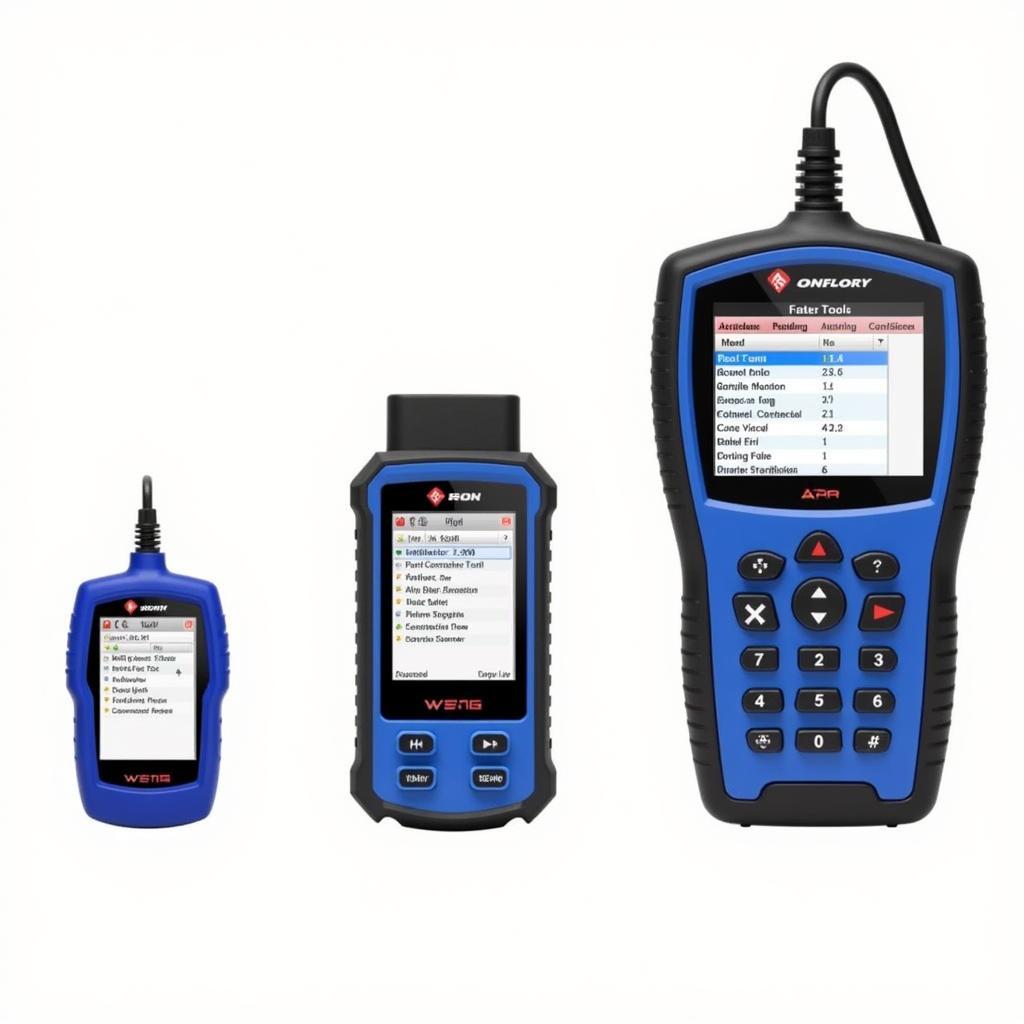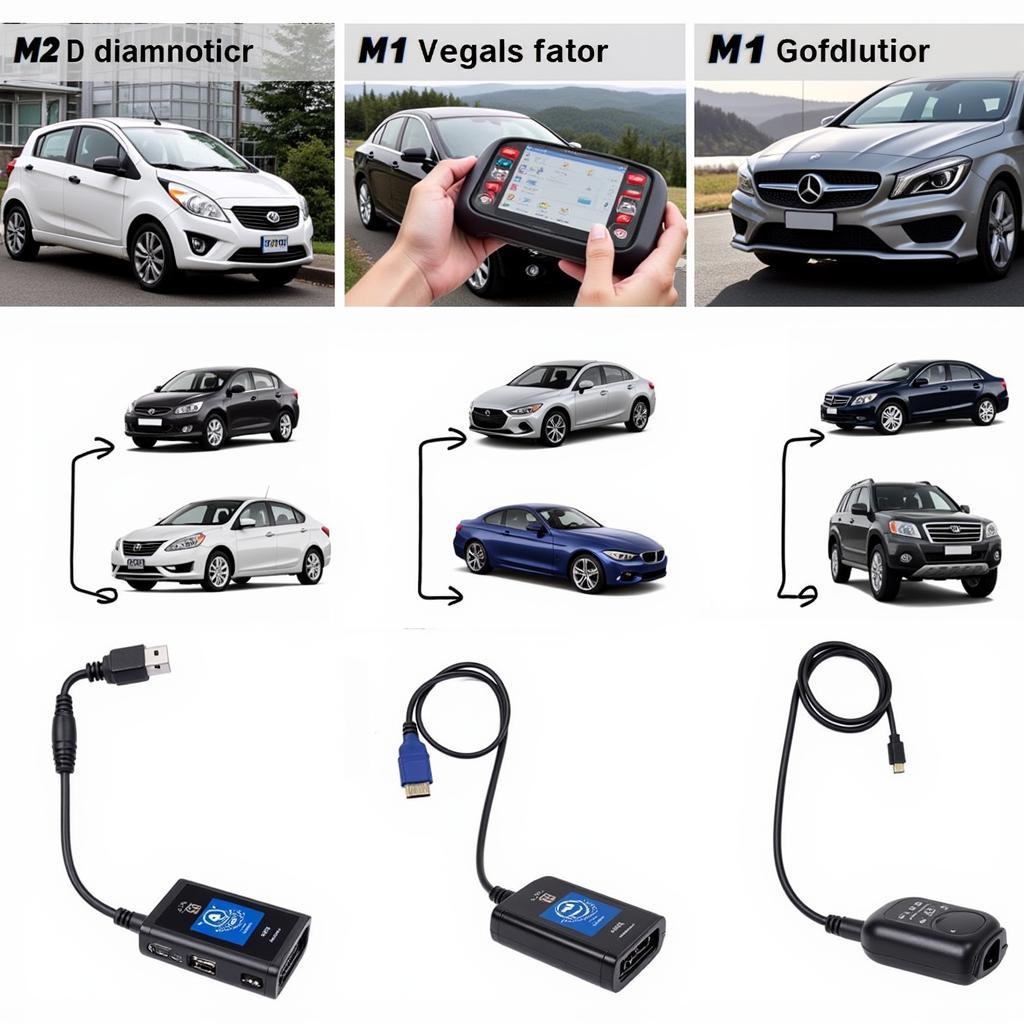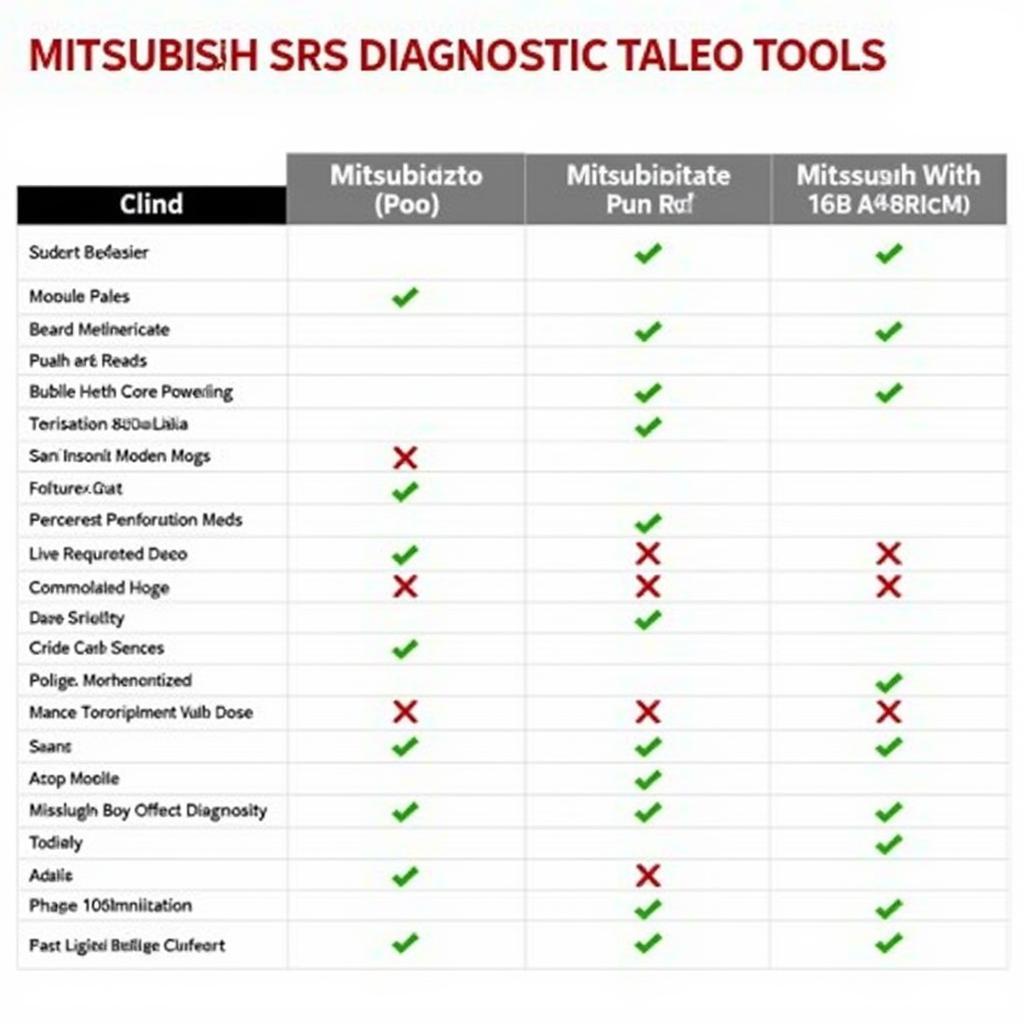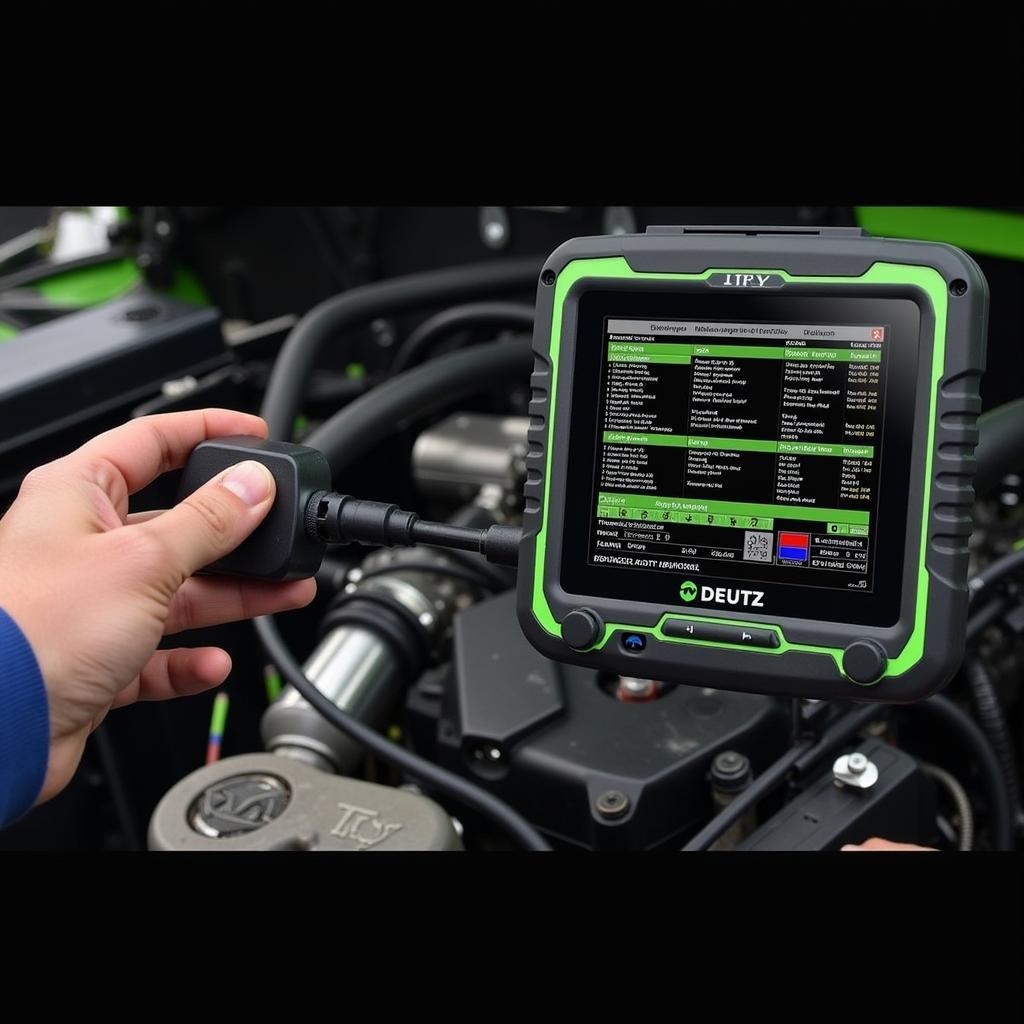Finding the right diagnostic tool for your Volkswagen is crucial for identifying and fixing any issues that arise. With the increasing complexity of modern vehicles, gone are the days of simple backyard fixes. Today’s VWs require a more sophisticated approach, and that’s where a reliable diagnostic tool comes in. This guide explores everything you need to know about diagnostic tools for VW, helping you make informed decisions about keeping your car in top condition.
Why You Need a Diagnostic Tool for VW
A diagnostic tool acts as a window into your VW’s computer system, allowing you to communicate with the various electronic control units (ECUs) that manage everything from engine performance to airbag deployment. Here’s why having one is essential:
- Accurate Diagnosis: Forget about endless guessing games. A diagnostic tool retrieves specific trouble codes stored in your VW’s ECU, pinpointing the root cause of a problem. This saves you time, money, and potential headaches from misdiagnosis.
- Early Detection: Often, car problems show subtle signs before escalating into major issues. A diagnostic tool can detect these early warning signs, allowing you to address minor problems before they turn into costly repairs.
- DIY Repairs: For the mechanically inclined, a diagnostic tool opens up a world of DIY repair possibilities. With the right tool and some knowledge, you can tackle tasks like resetting service lights, bleeding brakes, or even regenerating your diesel particulate filter (DPF).
- Cost Savings: While a diagnostic tool requires an upfront investment, it can save you significant money in the long run. By identifying problems early and potentially avoiding unnecessary trips to the mechanic, you maintain better control over your car maintenance expenses.
Types of Diagnostic Tools for VW
The market offers a wide range of diagnostic tools, each with varying levels of functionality and complexity. Understanding these types is crucial for choosing the one that best suits your needs.
1. Basic Code Readers
As the name suggests, basic code readers primarily retrieve and display trouble codes. They’re relatively inexpensive and user-friendly, making them suitable for casual users who want to understand basic engine fault codes. However, they may not provide in-depth information or advanced functionalities.
2. OBD-II Scanners
OBD-II scanners offer a step up from basic code readers. They provide access to live data streams from your VW’s sensors, allowing you to monitor parameters like engine RPM, coolant temperature, and oxygen sensor readings in real-time. Additionally, they can read and clear trouble codes, and some models offer features like freeze frame data and emissions readiness checks.
3. Professional-Grade Scan Tools
For comprehensive diagnostics and advanced functionalities, professional-grade scan tools are the go-to choice for mechanics and experienced DIY enthusiasts. These tools provide access to all vehicle systems, including engine, transmission, ABS, airbags, and more. They offer bi-directional control, allowing you to actuate components like solenoids and relays for testing purposes.
 Different Types of VW Scanners
Different Types of VW Scanners
Choosing the Right Diagnostic Tool for Your VW
Selecting the appropriate diagnostic tool depends on several factors:
- Your Budget: Basic code readers offer an affordable entry point, while professional-grade tools come with a higher price tag.
- Technical Expertise: Consider your comfort level with automotive technology. If you’re a beginner, a user-friendly OBD-II scanner might be a good starting point.
- VW Model and Year: Ensure the tool you choose is compatible with your specific VW model and year. Some tools cater to particular makes and models, offering enhanced functionality and access to proprietary systems.
Common VW Trouble Codes and Their Meanings
Understanding common VW trouble codes can help you interpret diagnostic results and take appropriate action.
- P0171: System Too Lean (Bank 1) – This code often indicates an air leak in the intake system or a problem with the mass airflow sensor (MAF).
- P0420: Catalyst System Efficiency Below Threshold (Bank 1) – This code suggests a problem with the catalytic converter, often due to a failing oxygen sensor or a rich fuel mixture.
- P0300: Random/Multiple Cylinder Misfire Detected – This code points to a general misfire condition, which could be caused by faulty spark plugs, ignition coils, or fuel injectors.
- U0101: Lost Communication with Transmission Control Module (TCM) – This code suggests a communication issue between the engine control module (ECM) and the TCM, often due to wiring problems or a faulty TCM.
best vw scan and diagnostics tool
Tips for Using a Diagnostic Tool on Your VW
Here are some essential tips for using a diagnostic tool effectively:
- Consult Your Owner’s Manual: Refer to your VW owner’s manual for the location of the OBD-II port and any specific instructions related to diagnostics.
- Start with a Clear Slate: Before troubleshooting, clear any existing trouble codes to avoid confusion with potential historical faults.
- Interpret Codes Carefully: While trouble codes provide valuable clues, they don’t always pinpoint the exact problem. Further investigation and testing are often necessary.
- Seek Professional Help When Needed: Don’t hesitate to consult a qualified mechanic for complex issues or if you’re unsure about performing repairs yourself.
Conclusion
A diagnostic tool is an invaluable asset for any VW owner, empowering you to understand your car’s health, identify potential problems early, and make informed decisions about maintenance and repairs. By choosing the right tool and using it effectively, you can save money, avoid unnecessary headaches, and keep your Volkswagen running smoothly for years to come.
Need help choosing the perfect diagnostic tool for your Volkswagen? Contact ScanToolUS at +1 (641) 206-8880 or visit our office at 1615 S Laramie Ave, Cicero, IL 60804, USA.



